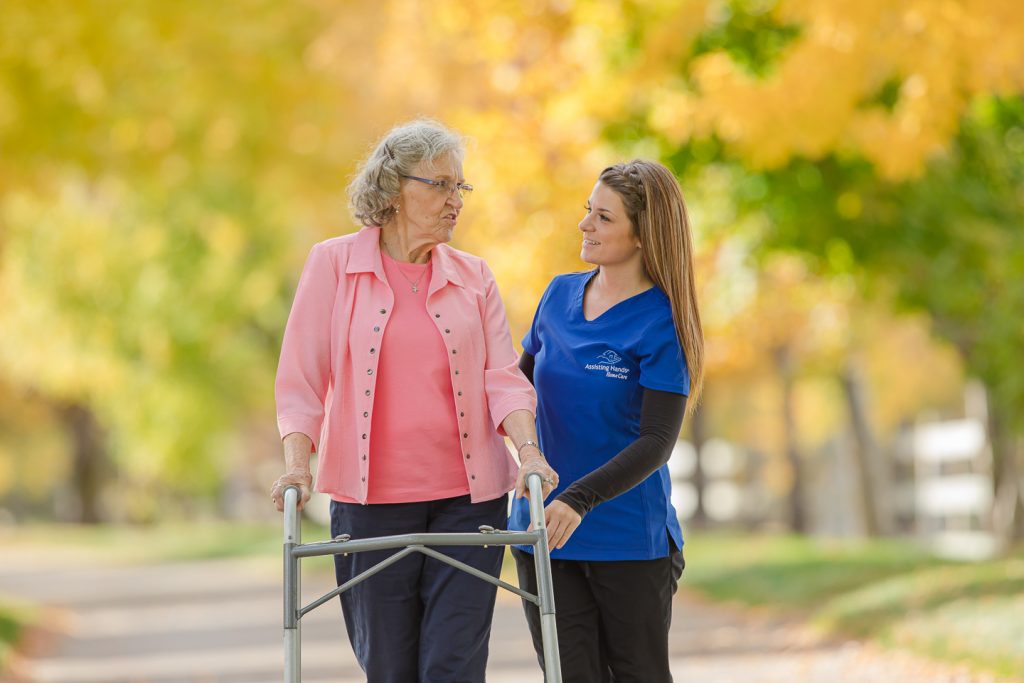
Unpredictable, disorderly, and disruptive behaviors can frequently surprise and challenge those caring for the elderly. While it’s true that some seniors have historically shown difficult tendencies, for many others, such behaviors may emerge suddenly as a consequence of various illnesses, including dementia, Alzheimer’s, or other cognitive impairments. It’s not uncommon for these conditions to alter a person’s temperament, leading to actions that can catch relatives and caregivers off guard.
Given these challenges, it’s imperative for caregivers dealing with challenging seniors to arm themselves with an abundance of patience and empathy. Understanding the root causes behind these behaviors can also aid caregivers in providing the necessary support and care, ensuring a compassionate and effective approach to managing these difficult situations.
What causes difficult behavior in seniors?
Seniors with difficult personalities may have been this way since their younger years. The concern arises when older adults manifest their difficult behaviors as they advance in years. A urinary tract infection (UTI), medications, or chronic pain can cause dramatic personality changes.
In addition to physical pain, signs of a UTI can include confusion, angry outbursts, and irritability. A senior living with depression may be prescribed antidepressants, which can cause side effects, like personality changes. Statins and drugs that control blood pressure also cause behavior changes.
Chronic pain can cause an increase in negative mood states. Anger, hostility, depression, fatigue, and anxiety can emerge in elderly chronic pain patients. These seniors perceive pain differently, and their negative mood states interfere with the efficacy of pain management tactics.
The boredom that comes with retiring from the workforce and no longer being directed by a strong purpose can provoke the tendency to complain. Reduced energy levels, limited mobility, and other age-related forms of decline that impact independence can also cause seniors to fixate on the negatives.
How do caregivers manage difficult behaviors?
- Angry Outbursts
Both increasing age and health problems can worsen undesirable, long-standing personality traits, like irritability. Unprovoked hostility and rage are oftentimes directed at the senior’s primary caregiver. The elderly individual may become demanding and impossible to please. Angry outbursts become commonplace.
Managing anger in seniors starts with pinpointing the cause. Memory issues, chronic pain, and losing friends are legitimate reasons to feel upset. Caregivers are urged to take frequent breaks. Seniors reserve their worst behaviors for their closest relatives, making respite care a welcome form of relief.
If the anger is due to Alzheimer’s disease or other forms of dementia, it is important that caregivers do not take the outbursts personally. Rather, focus on what is positive. Set boundaries and make an intention to respond only to positive, rather than negative, behaviors.
- Abusive Behavior
Emotional abuse can be an extension of the anger mentioned above, especially when left unaddressed. Lashing out is an unhealthy way for some seniors to vent their frustrations. While caregivers may elect to express the emotional hurt they feel when being abused, talking does not go far with these seniors.
Instead, caregivers are advised to take a break from caregiving duties in an effort to help the senior realize the extent of care being given. The caregiver may also remove herself from the situation to clearly convey that abusive behavior is not tolerated.
- Excessive Cursing
The sudden use of profanities is concerning, especially when the senior was known to be mild-mannered. Crass behavior may worsen as dementia progresses. A sudden onset of offensive language may be due to a UTI, which presents differently in older people than younger ones.
Dementia patients can be effectively distracted from their angry tirades. Change the subject by bringing up the happy times of days gone by. Help the senior understand her behavior is unacceptable by instilling guilt: “Would you want your grandkids to hear you speak like that?”
- Demanding Behavior
Some seniors resort to attention-seeking tactics once a family member becomes a caregiver. Caring for a senior who requires extensive support is valid. However, the physical and emotional demands can be frustrating when the senior is capable of independently handling tasks.
Family caregivers have their own families, careers, and homes to manage. Effectively dealing with a needy senior requires that the caregiver prioritize herself and set boundaries. Consider enrolling the senior in a book club or senior center so that she no longer focuses her attention on the caregiver.
Also helpful is introducing other people into the picture. Social engagement with others can prevent the senior from focusing solely on a caregiver. Ask friends, relatives, and members from the senior’s religious community to visit, which is especially valuable if the older adult is homebound.
- Complaining
Constant complaints may be a result of boredom. Without children to raise, a career to manage, or a purpose to direct them, older adults can start to focus on the negative and begin to complain. Seniors who slow down at this stage of their lives may find enjoyment in complaining.
Manage the unpleasant situation by introducing positive activities or events into their lives. Encourage the senior to volunteer for an organization that has meaning for her; volunteering can readily deliver the sense of purpose she lacks. Or, provide art supplies so that she can pursue an artistic hobby.
- Refusing to Bathe
It is quite common for seniors to refuse to shower or bathe, change their clothes, or engage in personal hygiene tasks like brushing their teeth. Seniors may do this due to depression, onset dementia, a desire for bodily autonomy, or a declining sense of sight or smell. Some seniors may also be afraid of falling in the bathtub but may not want to ask for help.
The first thing you need to do is determine why the senior has stopped bathing and keeping up with personal hygiene. If this is due to depression, you can suggest that your loved one talks to their doctor about therapy and antidepressant medication. For those who are afraid of falling in the tub or shower, install grab bars, shower chairs, and handheld showerheads to help make bathing safer. If they are embarrassed to accept help bathing, suggest that they receive bathing assistance from a professional caregiver.
- Refusing to Accept Care from a Caregiver
If your loved ones require daily care that is beyond what you and your family can provide, you may need to bring in help from a professional home caregiver. Starting home care for your senior loved ones is a big step and some seniors may not be receptive to receiving outside help.
Seniors may resist outside care because they believe they are capable of getting by without their care, or because they view hiring an outside caregiver as a sign that their family no longer wants to take care of them. If your loved ones are resisting home care, you must determine why they are resisting. By understanding why they are resistant, you can directly address their feelings.
Your loved ones may be uncomfortable with someone new coming into their home. If this is the case, suggest that they meet the caregiver outside their home first. Help them understand the benefits of home care and how the presence of a caregiver benefits you and your loved ones. You can also suggest that they try home care temporarily and if it does not work out, you can explore different options.

Senior Home Care from Assisting Hands
Dealing with challenging behaviors from elderly family members can often leave families feeling overwhelmed. However, Assisting Hands Home Care provides a beacon of reliable support through our elder caregivers. We specialize in motivating and managing seniors exhibiting difficult behaviors with understanding and compassion.
Our caregivers bring a wealth of experience, having compassionately dealt with seniors who may be hostile or resistant to personal care, such as bathing. We assess each individual’s situation, taking into account possible factors like illness, medication side effects, or boredom, and implement proactive strategies to address these issues. Our aim is to improve the overall well-being of seniors through our comprehensive care services.
Assisting Hands Home Care offers an extensive range of in-home elder care services, which are designed to maintain the dignity and independence of seniors. These services include assistance with personal hygiene, preparing meals, grocery shopping, conducting fall-risk evaluations, light housekeeping, and providing medication reminders. Additionally, we offer transportation for seniors to medical appointments, senior centers, and other errands.
Recognizing the importance of regular social interaction in preventing feelings of loneliness and isolation among elderly individuals, our services include dedicated companion care. We engage in meaningful conversations, encourage the pursuit of hobbies, accompany seniors on safe outings, and provide emotional support, ensuring they feel valued and connected.
Assisting Hands Home Care provides the best non-medical home health care in Deerfield, Grayslake, Lake Zurich, Lake Forest, Lincolnshire, Mundelein, Vernon Hills, Highland Park, Libertyville, Round Lake Beach and the surrounding areas. We will assess their care needs, whether the senior would benefit from respite care, post-surgical care, 24-hour care, or dementia care. Contact us at (224) 268-9068 for a free consultation, and we’ll customize the ideal care plan.
















